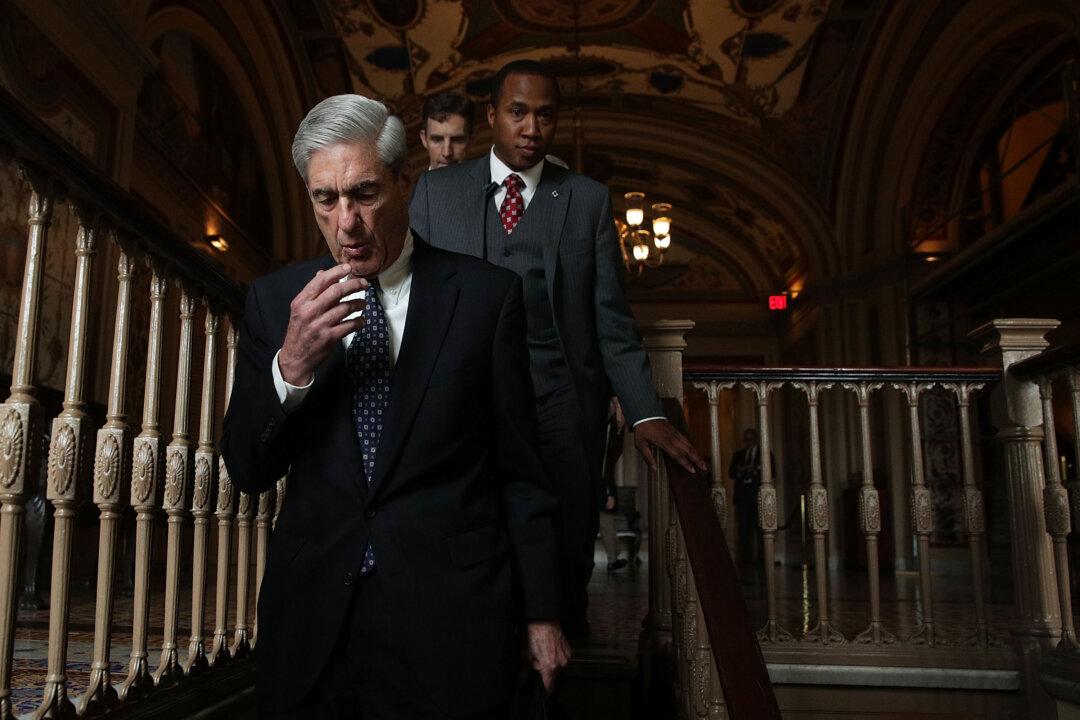Special counsel Robert Mueller and his team may face widespread conflicts of interest as evidence mounts that their current and former colleagues at the FBI and the Department of Justice (DOJ) were behind unsavory attempts to damage the candidacy of Donald Trump.
Mueller was appointed on May 17, 2017, to investigate the Kremlin’s efforts to interfere in the 2016 presidential election, including any links or coordination between the Russian government and the campaign of then-candidate Donald Trump.





